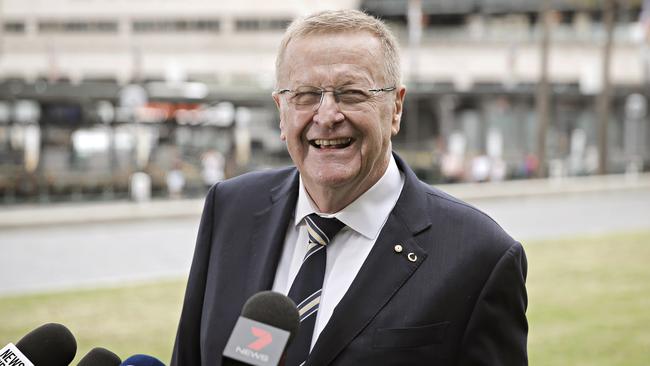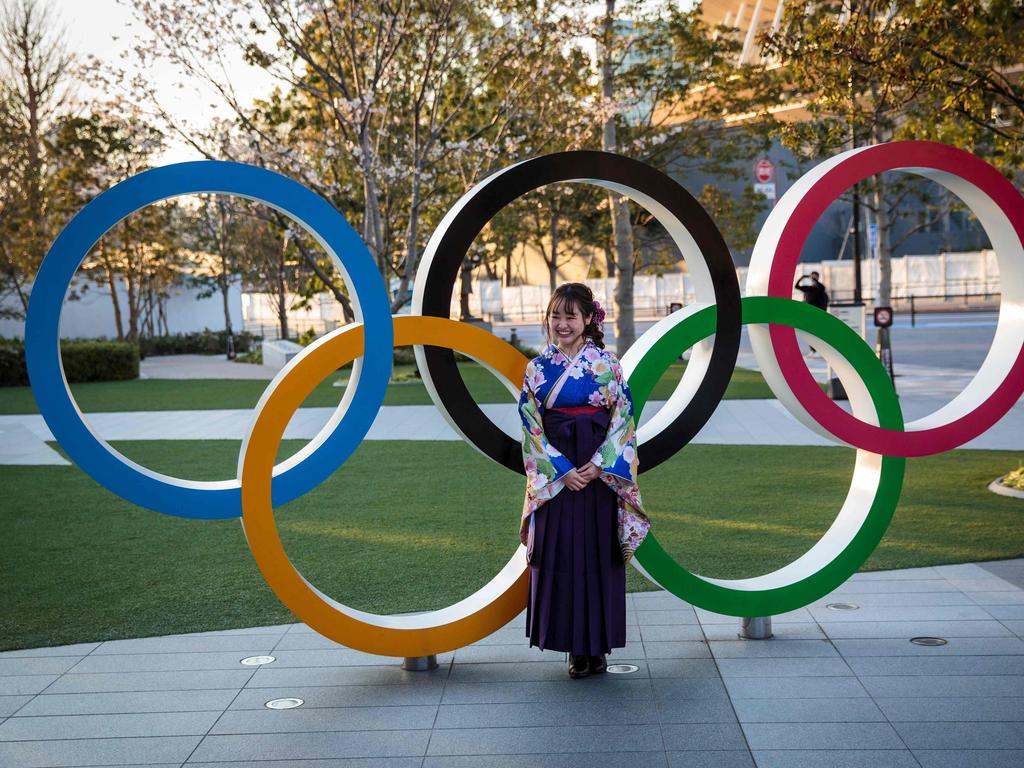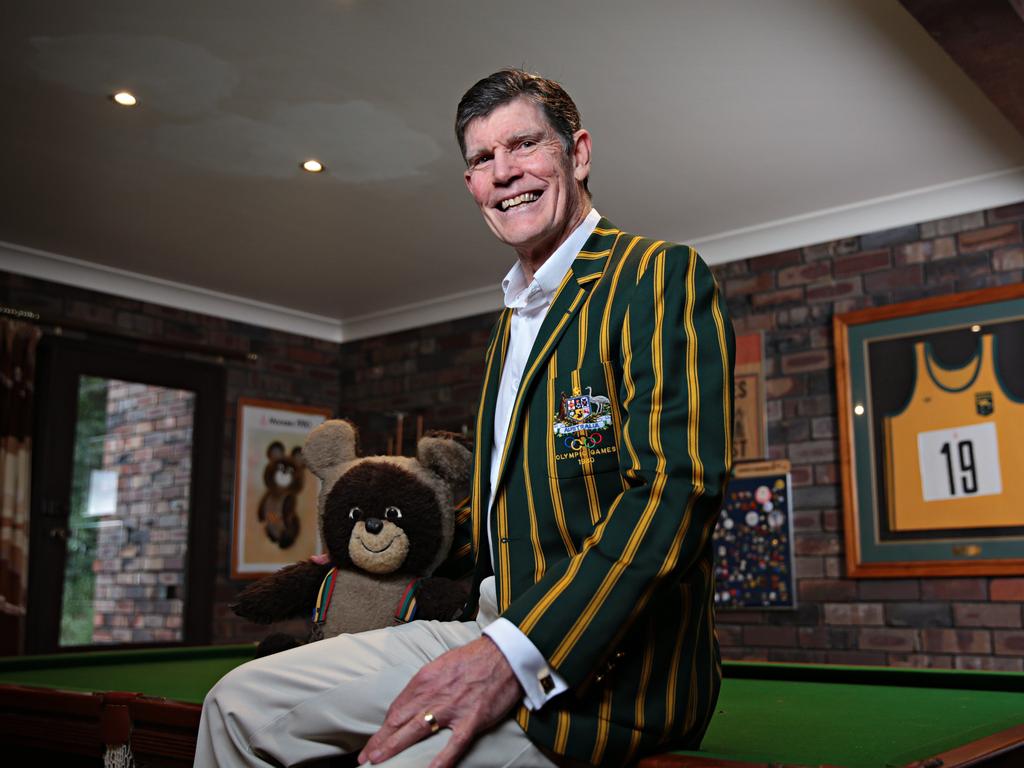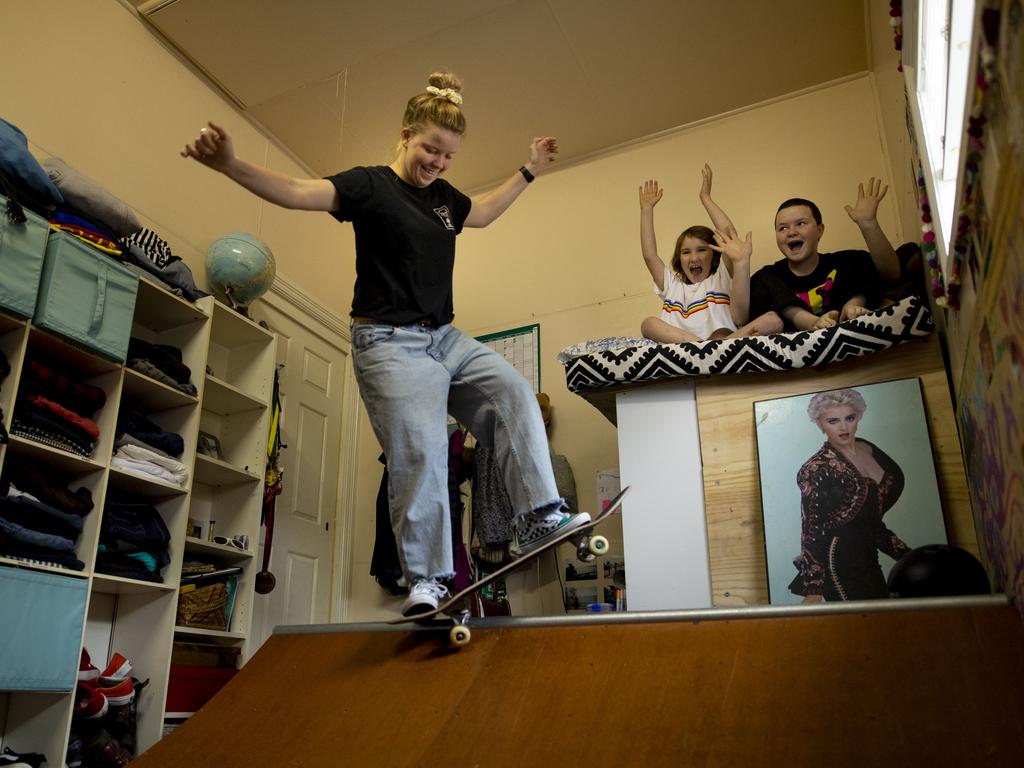John Coates elected vice-president of International Olympic Committee
Australia’s top sports official John Coates secures new term in key IOC role ahead of 2020 Tokyo Olympics.

Australia’s top sports official John Coates has been elected vice-president of the International Olympic Committee as it negotiates rocky preparations for the postponed Tokyo 2020 Olympics to be held in late July next year.
Coates has previously served as an IOC vice-president in 2013, and was re-elected at the first opportunity available to him under term limit rules on Friday at the IOC’s annual session.
Coates’ elevation was no surprise, being a close associate of IOC president Thomas Bach, who has also announced his intention to seek another four-year term next year. Bach is unlikely to be challenged and is expected to be IOC president through to 2025.
"The post-corona world needs sport to overcome the crisis. We stand ready to contribute to this recovery" - IOC President Thomas BACH #IOCSession pic.twitter.com/rd5WbDs3sD
— IOC MEDIA (@iocmedia) July 17, 2020
Coates, the president of the Australian Olympic Committee and chairman of the Court of Arbitration for Sport, is also heavily involved in the postponed Tokyo 2020 Olympic Games. For the past seven years he has been the co-ordination commission chair for the Games, essentially the IOC’s top official to oversee the organisation of the Games in Japan.
Coates received 78 votes in favour, with nine against and five abstentions in the online voting for the vice-president position. Another experienced IOC member, Ser Miang Ng, was also voted in for the second vacant vice-president spot.
This 136th IOC session, held virtually for the first time in its history, was also notable for the election of World Athletics president Seb Coe as an IOC member.
Bach called on governments to include sport in their corona-recovery programs and warned of “the growing misuse of sport for political purpose as one of biggest challenges”.
The value of non-discrimination was demonstrated in a unique way by Jesse Owens, the legendary four-time Olympic champion. – IOC President Bach. #IOCSession pic.twitter.com/u94sDoY0yI
— IOC MEDIA (@iocmedia) July 17, 2020
In his keynote speech, Bach referred to boycotts and discrimination when he said: “In some peoples minds the ghosts of the past are rearing their ugly heads. It appears today some do not want to learn anything from history. Such sporting boycotts do not have any political effect whatsoever.”
Bach’s comments appeared to be a warning about unrest ahead of the 2022 Beijing Winter Olympics, given China’s human rights record, as well as political moves in the United States that threaten to withhold funding from the World Anti Doping Agency, as well as the longstanding drugs scandal that continues to rumble about Russia’s participation in world sport.
“Boycotts and discrimination because of political background or nationality are once again a real danger,” Bach warned.
“A sporting boycott only punishes the athletes of the boycotting country and deprives their people of sharing in the success, pride and joy of their Olympic team.”
These words of @MuhammadAli perfectly mirror the philosophy and action of our Olympic Solidarity, which benefits all athletes from all NOCs and from all Olympic sports. – IOC President Thomas Bach. #IOCSession pic.twitter.com/Dffe6MZrlp
— IOC MEDIA (@iocmedia) July 17, 2020
Coates told the session that Tokyo 2020 had secured the Olympic village and main media centre for the rescheduled Games.
“To secure 42 venues is a massive task,” he said. “That means with the same venues we can have the same competition schedule.”
Tokyo 2020 chief executive Yoshiro Mori said a simplified and less complex Olympic Games would not impact on the competition schedule, nor any sports or athletes.
“The moment when athletes emerge from the long dark tunnel will be a victory of mankind and a moment of pure and priceless joy and many people around the world will find this sight deeply moving,” he said.
Tokyo 2020 will report on additional budget costs associated with the postponement, as well as the expenses of COVID-19 countermeasures, later in the year.







To join the conversation, please log in. Don't have an account? Register
Join the conversation, you are commenting as Logout